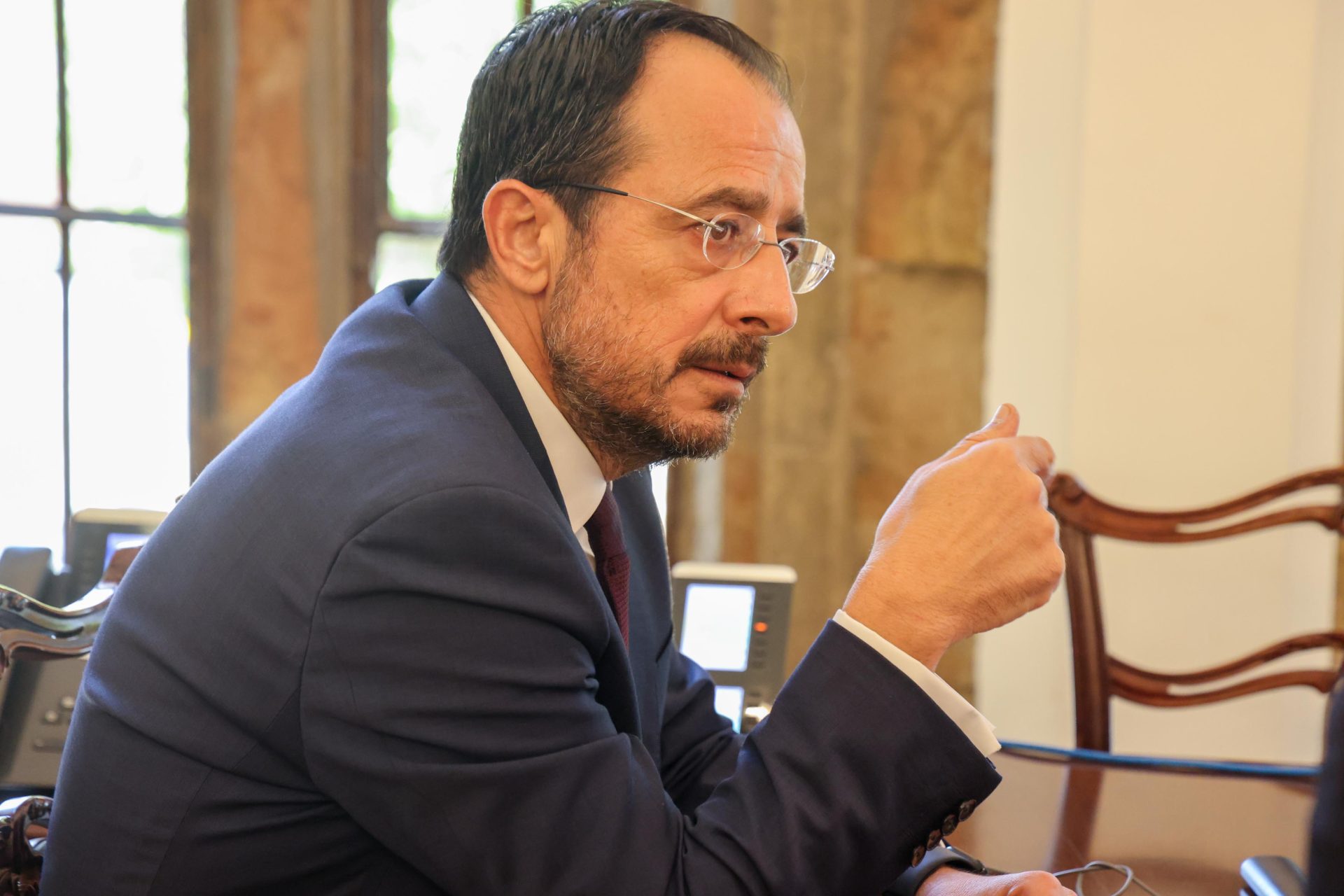Greco-Cyprus relations are “stronger than ever”, President Nikos Christodoulides said on Monday, after saying on Sunday he would not be blackmailed by Greece’s independent power transmission operator Admie and the latter “categorically dismissed” allegations regarding compensation.
“The relations between Nicosia and Athens, the relationship of the Cypriot government with the Greek government and my relationship with the Greek prime minister are stronger than ever before,” Christodoulides said.
Speaking in Limassol on arrival at the Maritime Cyprus conference, Christodoulides said “those investing in a rupture in the relations of the Greek government with the Cypriot government, in my relationship with the Greek prime minister, will be disappointed.”
The president added that this was “evident”.
His position was echoed by Greek government spokesman Pavlos Marinakis, who said the relationship between the two countries was “strong” and that it would “not be disrupted because of a project”.
In response to Christodoulides’ remarks, Marinakis said the Greek prime minister and government “absolutely support” the pursuit of common interests.
On the project itself, Marinakis said it would benefit Cyprus above all and was linked to the resolution of economic and technical issues and the non-questioning of its viability.
In statements on Sunday, Christodoulides said Cyprus will not be blackmailed by Admie, following reports the Greek company had objected to the government only agreeing to paying €25 million towards the cost of the Great Sea Interconnector, which would link the electricity grids of Greece, Cyprus and Israel.
“If the head of Admie thinks that the Cypriot government is being blackmailed with such letters or paid listings, he obviously does not know who he is dealing with,” Christodoulides said, adding that the government “will not be blackmailed by any head of Admie, it is here to support only the interests of the Cypriot people. This is a clear message to the head of Admie”.
According to the Phileleftheros article, Admie has called for a cancellation of a Cyprus government decision in July to pay €25 million, to be replaced by a decision to meet all payments for the cable, which will be justified through the energy regulatory authority (Cera) with invoices.
Later in the day Admie released a statement “categorically dismissing” what was in the Phileleftheros report.
It dismissed the “arbitrary and unverified information” contained in the press report that it was demanding the immediate payment of €251 million, which was part of the €1.9 billion project, which would be recovered over the 35-year depreciation period that had been set.
“The reason Admie, based on its contractual right, requested a review of Cera’s decision of July 31, 2025, is that Cera with this decision did not recognise the expenses the operator had incurred to date, despite the evidence it had received and despite the fact that the Greek regulatory authority recognises them,” Admie said.
It added that “Cera only acknowledged the amount of €82 million, compared to approximately €251 million, which constitute investment expenses confirmed to date.”
Admie is “seeking recognition by Cera of its actual expenses to date”.
An agreement signed by the Greece and Cyprus in July 2024 means Cyprus will not pay for the costs of construction as they occur but only €25 million a year for the 2025-2029 period.
This would in effect help finance the project and ensure that Admie, its 51 per cent shareholder and implementing body, will have a stable income while investing in the project before it turns a profit.
The €25 million has been included in the budget for 2025 and 2026, Christodoulides said last month.
But last week, Christodoulides said “certain things” must be implemented before Cyprus makes its planned €25 million payment.
And last month, Energy Minister George Papanastasiou had said Cyprus will pay the first €25m instalment when the project is being “implemented in its entirety”, the construction of cables alone is “not enough” to meet this criterion.
The government had initially planned to utilise funds made available to it through the European Union’s emissions trading system (ETS) to make the payments to Admie, to prevent the burden of payments falling on the taxpayer.
Admie had warned that this arrangement may violate the EU’s rules on state aid, and as such asked Cera to begin charging consumers instead.






Click here to change your cookie preferences